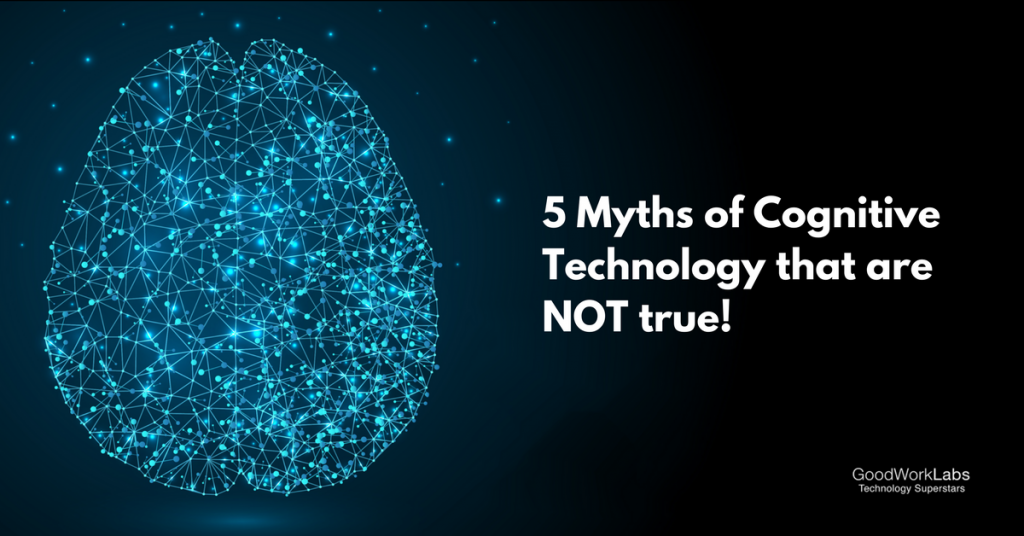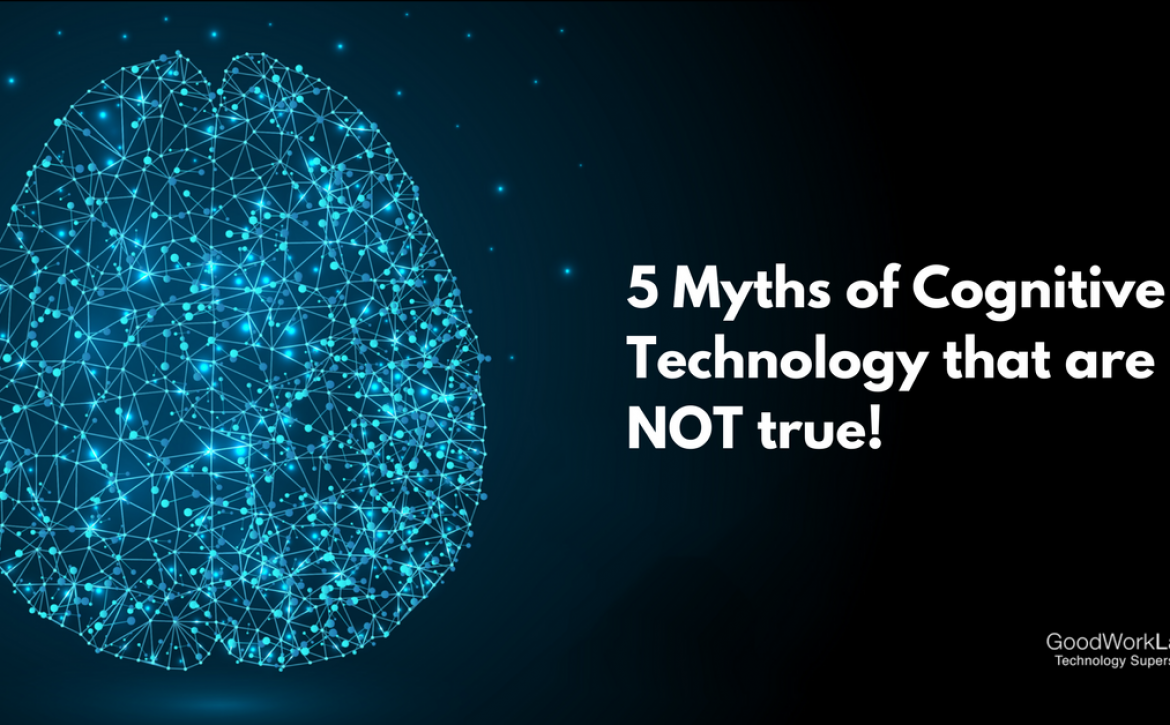5 Myths about Cognitive Technology Busted
Myths about Cognitive Technology Debunked
Cognitive technology is one of the widely discussed concepts in the world of business. These discussions help businesses understand the importance and opportunities of the technology. However, there are several myths associated with cognitive technology that limit the knowledge of enterprises.
According to a survey on cognitive technology, businesses and enterprises feel confident about the future of AI and cognitive technologies. However, it would be important to clear the myths in order to successfully adapt cognitive technologies.

In this article, we are going to clear the air around the common misconceptions around congnitive technology.
1. Cognitive technology is all about automated functions
There is a myth among enterprises that cognitive technologies are only used to bring automation in the workforce. The technology is used to reduce the required human labor. However, this is not the whole truth.
AI and cognitive technologies are much more than automation solutions. The applications of these technologies can be used in multiple processes including insights. For instance, cognitive technologies can be used to create better customer service for the end users. The technology helps in understanding the customer data through insights and provide relevant and satisfactory services to the customers. So, the application is more about the intelligence, rather than just automation.
2. The financial outcomes are very basic with cognitive technologies
There are business owners who feel that AI technologies require a lot of investment and result in very basic financial outcomes. Also, they argue that the time lag between the investment and benefits is too long for general organizations.
However, the above-mentioned survey suggests that about 83% of companies that invested in cognitive technologies have obtained impressive or moderate benefits in terms of finances. So, the improved functions of the business get much better economic results with the application of cognitive technologies.
3. Cognitive technologies increase unemployment
One of the most argued topics in the application of cognitive technologies is the automation that brings unemployment. However, this is all wrong. In fact, cognitive technologies present great opportunities for the human employees to work side-by-side with the artificial intelligence.
The technology definitely enhances the productivity of employees, but it doesn’t reduce their importance in any manner. Plus, the arrival of cognitive technologies has created multiple new jobs for professionals, which is also a positive outcome in terms of the future of employment.
4. Cognitive technology is just a trend that will fade away
Many people suggest that AI and cognitive technologies are just a trend that is getting hyped by the media. But what they don’t know is that AI presents clear signs of acceptance and growth on a global scale. In fact, the AI market is expecting $59.8 billion revenue worldwide by the end of 2025. And that says a lot about cognitive technology’s future.
5. The application of cognitive technologies requires a complete transformation
This is another myth that stops companies and organizations from implementing AI in their business. A few company leaders think that cognitive technology application changes the functionality of the business drastically. However, it is not about the transformation, but the integration of cognitive technologies in business.
Final words:
The studies are presenting clear signals towards the success of the cognitive technology. It is the time that you understand it too. Debunking these myths will help businesses embrace this technology wholeheartedly and gain from it.



